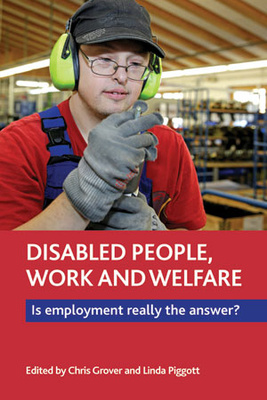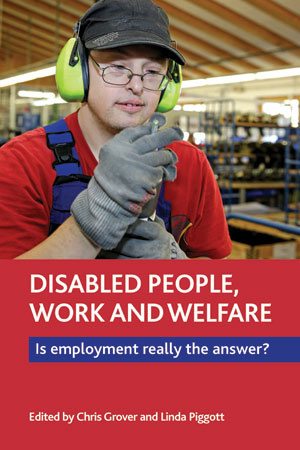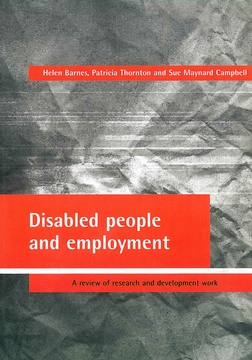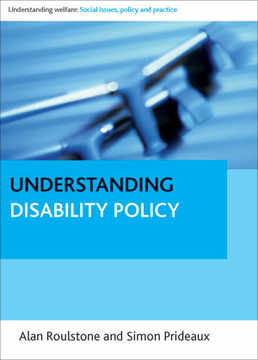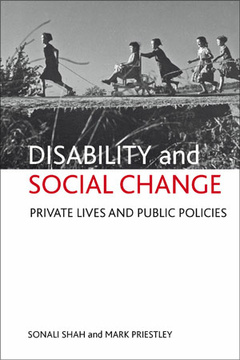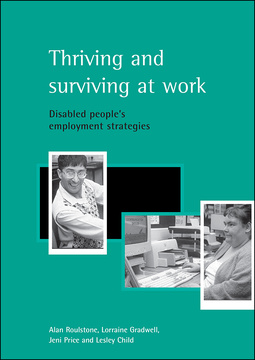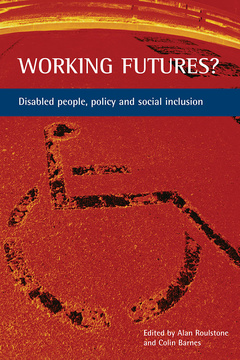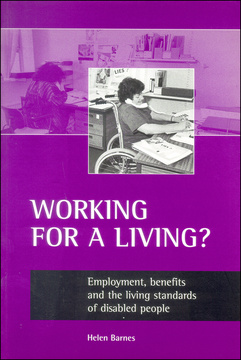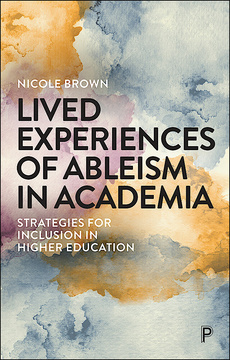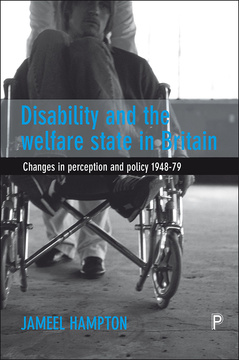Disabled People, Work and Welfare
Is Employment Really the Answer?
Edited by Chris Grover and Linda Piggott
Published
Jul 1, 2015Page count
256 pagesISBN
978-1447318330Dimensions
234 x 156 mmImprint
Policy PressPublished
Jul 1, 2015Page count
256 pagesISBN
978-1447318323Dimensions
234 x 156 mmImprint
Policy PressPublished
Jul 1, 2015Page count
256 pagesISBN
978-1447318361Dimensions
Imprint
Policy PressPublished
Jul 1, 2015Page count
256 pagesISBN
978-1447318378Dimensions
Imprint
Policy PressPublished
Jul 1, 2015Page count
256 pagesISBN
978-1447318354Dimensions
Imprint
Policy PressEPUB and EPDF available Open Access under CC-BY-NC-ND licence. This is the first book to challenge the concept of paid work for disabled people as a means to ‘independence’ and ‘self determination’. Recent attempts in many countries to increase the employment rates of disabled people have actually led to an erosion of financial support for many workless disabled people and their increasing stigmatisation as ‘scroungers’. Led by the disability movement’s concern with the employment choices faced by disabled people, this controversial book uses sociological and philosophical approaches, as well as international examples, to critically engage with possible alternatives to paid work. Essential reading for students, practitioners, activists and anyone interested in relationships between work, welfare and disability.
Dr Chris Grover is a Senior Lecturer in Social Policy at Lancaster University. Interested in the political economy of social security policy, Chris has written extensively on developments in disability benefits in Britain.
Linda Piggott is a former Lecturer in Applied Social Science at Lancaster University. Linda has now retired, but she has written widely on several issues related to disability, including benefits for disabled people, disabilist hate crime, and disability and education.
Disabled people, work and welfare ~ Chris Grover and Linda Piggott;
Part One: Changing constructions of disability and welfare;
Disabled people, conditionality and a civic minimum in Britain: reflections from qualitative research ~ Ruth Patrick and Deborah Fenney;
Doing the 'hard yakka': implications of Australia's workfare policies for disabled people ~ Alan Morris, Shaun Wilson and Karen Soldatic;
Part Two: Social policy, work and disabled people;
Why are the policies and organisations seeking to help disabled people access work failing? ~ Bruce Stafford;
Disabled people, welfare reform and the balance of rights and responsibilities ~ Dan Heap;
Disabled people and employment in Poland ~ Monika Struck-Peregończyk;
Disability and employment in the United States: the intersection of healthcare reform and welfare-to-work policy ~ Randall Owen, Robert Gould and Sarah Parker Harris;
Social dialouge, partnership and the Danish model of activation of disabled people: challenges and possiblities in the face of austerity ~ David Etherington and Jo Ingold;
Part Three: Assistance and access to paid work;
Employment experiences and outcomes of young people in Scotland who are deaf or hard of hearing: intersections of deafness and social class ~ Mariela Fordyce and Sheila Riddell;
Supply- and demand-side policies and the employment of learning disabled people in Britain ~ Sarah Woodin;
How can integrated services help sick and disabled people remain in employment? Findings from an evaluation of an in-work support service in the North of England ~ Jon Warren, Kayleigh Garthwaite and Clare Bambra;
Part Four: Alternatives to, and validated lives beyond, paid work;
Thinking differently about 'work' and social inclusion for disabled people ~ Edward Hall and Robert Wilton;
A right not to work and disabled people ~ Chris Grover and Linda Piggott;
Disability, work and welfare: the disappearance of the polymorphic productive landscape ~ Alan Roulstone;
Part Five: Conclusion;
Themes in Disabled people, work and welfare ~ Chris Grover and Linda Piggott.







